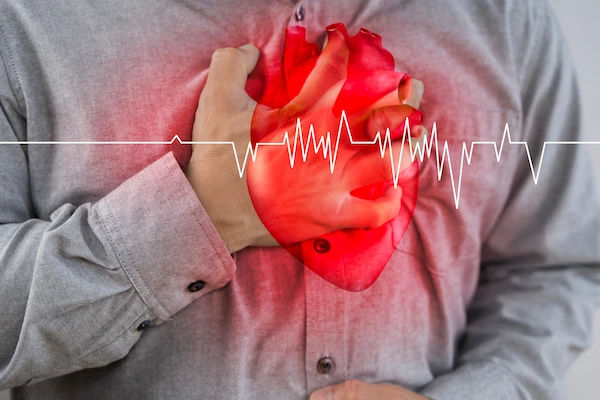- female
- 30 Years
- 20/02/2025
I've been experiencing some weird pricks in my chest over the past few days and it's kind of unsettling. I already had my echo and ECG done and they both came back normal, plus the X-ray showed nothing unusual. Should I be worried at this point, or is it worth getting more tests done to figure out what's going on?
Answered by 1 Apollo Doctors
Chest pricks can have various causes, including musculoskeletal issues, anxiety, or even gastrointestinal problems. Since your echo, ECG, and x-ray are normal, it is reassuring that there are no major heart or lung issues. However, if the symptoms persist, it may be helpful to consider other investigations such as a Holter monitor to assess your heart rhythm over a longer period of time, or a stress test to evaluate your heart's function under exertion. Additionally, discussing your symptoms in detail with your healthcare provider can help determine the best course of action.
Dr. Ranjith Suggests...
Consult a Cardiologist
Answered 25/07/2025
0
0

More Cardiology Health Queries
View allI'm going through my echo report and have a few questions. It mentions normal LV with normal systolic function and no segmental wall motion abnormality, which sounds good, but I'm not quite sure what all that means. Should I be concerned about anything specific? It also says theres no vegetation or LV clot, which is a relief, but could you explain what "mild TR with mild PAH" means? And is a fast heart rate during the test something to be worried about? My EF is 60%, but I'm not sure if that's normal or not. Any insights would be appreciated!
Based on the Echo Report, everything seems to be within normal limits except for the mild tricuspid regurgitation (TR) and mild pulmonary arterial hypertension (PAH). For mild TR and mild PAH, you can take Tablet Sildenafil 20mg once daily to help with the pulmonary hypertension. It is important to follow up with your doctor for further evaluation and management.
Answered by 1 Apollo Doctors
I'm a bit concerned because my resting heart rate is around 80 while I'm just sitting at my desk doing nothing. Is this something I should be worried about?
A resting heart rate of around 80 beats per minute is generally considered within the normal range for adults. However, if you are experiencing symptoms such as dizziness, shortness of breath, chest pain, or fainting spells along with the elevated heart rate, it may be worth consulting with a healthcare provider. In the meantime, you can try managing stress, getting regular exercise, and maintaining a healthy diet.
Answered by 1 Apollo Doctors
I'm a bit confused about when to take my Cardace AM 5mg. Is it better to take it in the morning on an empty stomach or at night before going to bed? Would appreciate some guidance on this.
YES cardace tablet is taken in the morning only to avoid the complications.
Answered by 1 Apollo Doctors
Disclaimer: Answers on Apollo 247 are not intended to replace your doctor advice. Always seek help of a professional doctor in case of an medical emergency or ailment.




